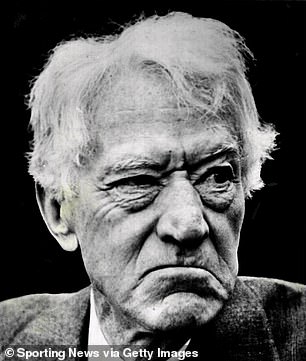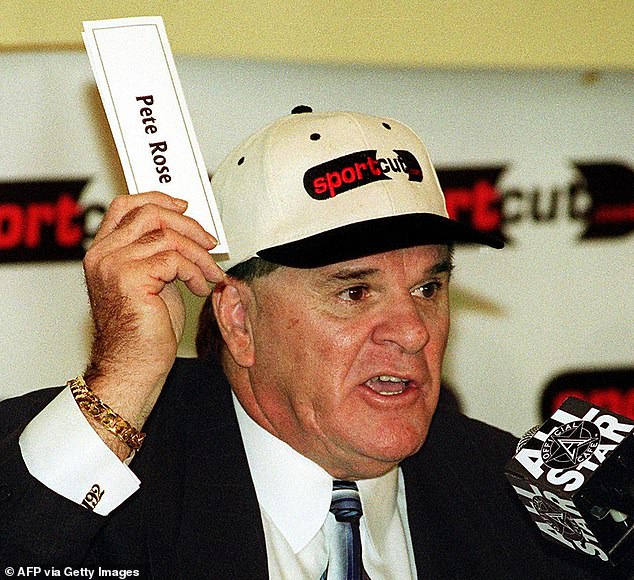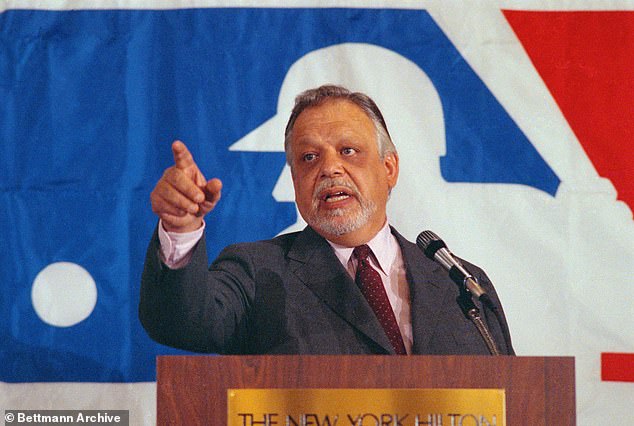MLB previously brought in mobsters and FBI informants to warn players about gambling, ex-Red Sox closer claims… as Dodgers’ $700m star Shohei Ohtani faces investigation over suspicious wire transfers to a bookie
Amid baseball’s biggest gambling scandal since Pete Rose was banned in 1989, former Boston Red Sox closer Jonathan Papelbon has opened up about the commissioner’s office’s efforts to stop players from placing bets on baseball.
In some cases, Major League Baseball brought in known mobsters and FBI informants to talk to players about the dangers of gambling.
“They took a number of mafia members with them,” Papelbon said Audacy’s Baseball Ain’t Boring podcast on Thursday. ‘Gambling is such a big problem. They brought former FBI informants with the gambling ring gang to come and talk at spring training about, “Don’t get sucked into gambling. Stay clean. Don’t enter that world, because once you’re in it, you’re done.”
“This is how serious this is, man. We try to keep the game clean. Once the game is infiltrated, it’s over.’
Papelbon’s revelation comes as Los Angeles Dodgers superstar Shohei Ohtani is under investigation by Major League Baseball for suspicious wire transfers from his bank account to an illegal California sportsbook. Ohtani has denied gambling on baseball and accused his now-fired translator, Ippei Mizuhara, of stealing millions to cover his own gambling losses.
Ex-Boston Red Sox closer Jonathan Papelbon has opened up about the commissioner’s office’s efforts to stop players from placing bets on baseball

Ohtani is under investigation for suspicious transfers from his bank account to bookmakers
Baseball is notoriously rigid when it comes to gambling violations.
Then-commissioner Kenesaw Mountain Landis set the precedent in 1921 by issuing lifetime bans to members of the 1919 Chicago White Sox for throwing that year’s World Series to the Cincinnati Reds at the behest of New York gambler Arnold Rothstein.

Kenesaw Mountain Landis (pictured) banned members of the 1919 White Sox for life
Then in 1989, Commissioner Bart Giamatti issued a lifetime ban to Reds manager and all-time baseball leader Pete Rose.
Although Rose denied gambling at the time, he admitted in 2004 that he had bet on games in Cincinnati while managing the team, but insisted he had never bet against the Reds.
His critics have argued that this is irrelevant because he could potentially rest his best relief pitchers for games if he wasn’t gambling, making Cincinnati less competitive on those nights.
It was in 1991 that the Hall of Fame board declared Rose ineligible for life, and current commissioner Rob Manfred recently vowed to enforce that ban.
“Pete Rose kind of broke rule one in baseball, and the consequences of that are clear in the rulebook, and we’ve continued to play by our own rules,” Manfred said in 2023.

Former Cincinnati Reds player and manager Pete Rose was given a lifetime ban for gambling

Commissioner A. Bartlett Giamatti (pictured) banned Pete Rose from baseball for life in 1989
Many have wondered if one person can impact an MLB game, but Papelbon knows it’s entirely possible.
“Yes, 1,000 percent,” Papelbon said. “Especially young guys and especially guys that are in my position as a closer that can really impact a game. I could have literally affected every game I played in.
“To the extent that we can still win, but I can still score a point, cover, be OK, to that extent no one would ever know,” he continued. “As a player I don’t think it happens as often as you think they are approached, but it does happen. It happens to players.’
MLB has been using mobsters to talk to players about gambling for decades, Michael Franzese, a former capo of the Colombo crime family, told HBO’s “Real Sports with Bryant Gumbel” in 2002.
Franzese said he approached players in the late 1970s and early 1980s about throwing games, but did not identify individuals.
